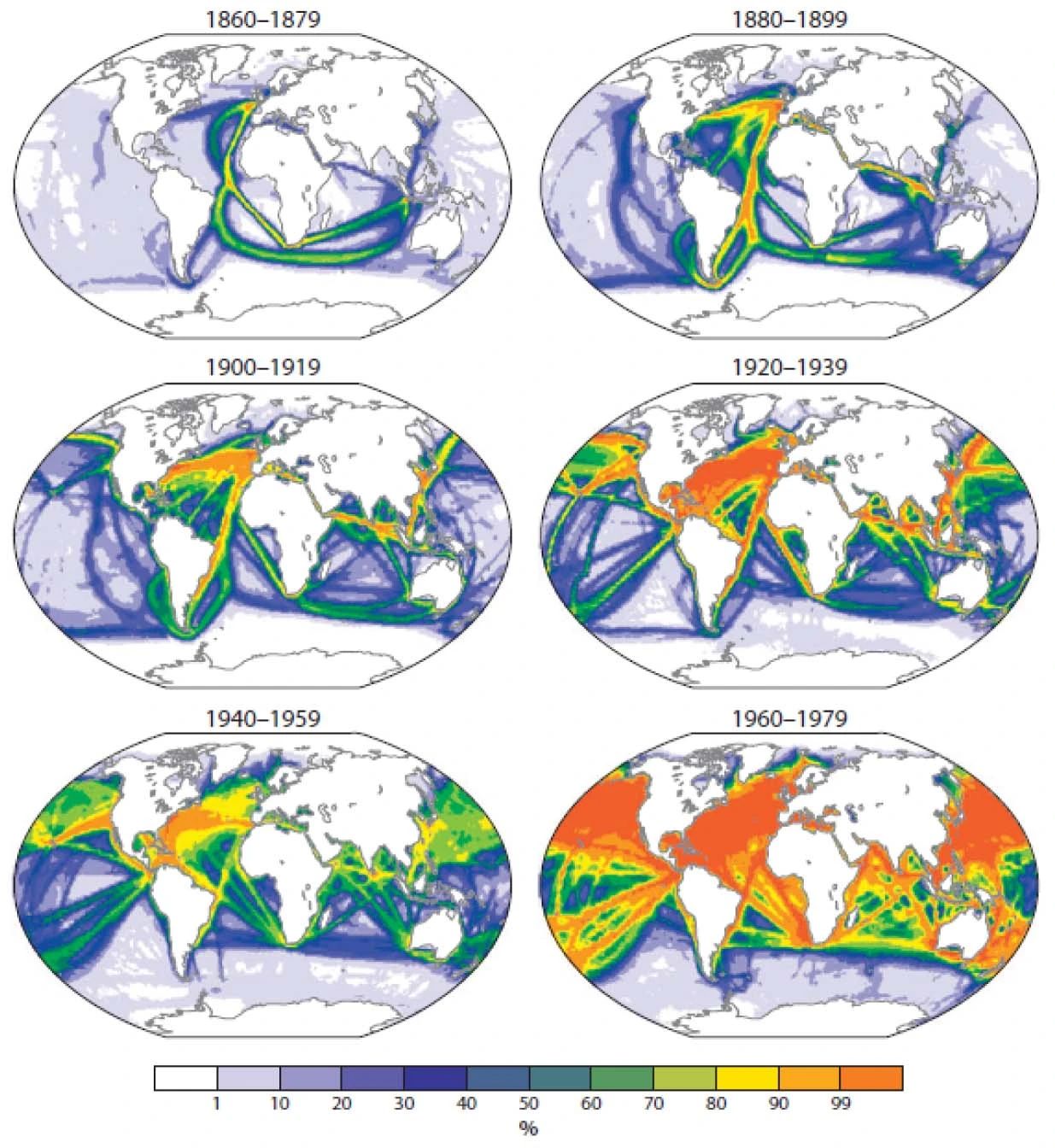Global Warming May Have Begun in 1860 and Could Be Far More Advanced Than Estimated
Follow us on Google News (click on ☆)

Data from the International Comprehensive Ocean-Atmosphere Data Set for each 20-year period since 1860. Coloration indicates the percentage of months with at least one measurement in a 2° latitude by 2° longitude area. Note the sparse observations, especially for critical ENSO regions in the central Pacific Ocean from 1860 to 1899, with still few observations for the Southern Oceans until 1980.
Scientists, by examining a species of sponge, Ceratoporella nicholsoni, known for its rock-hard exoskeleton and millennial longevity, have discovered marine temperature records spanning 300 years. These sponges, by incorporating strontium and calcium carbonate from seawater, alter the ratio of strontium to calcium in their skeleton depending on the ocean's temperature. This method, akin to reading tree rings, has produced a temperature history, suggesting that warming began as early as the 1860s, forty years earlier than the estimates of the Intergovernmental Panel on Climate Change (IPCC).
This revelation has sparked a lively debate among the scientific community, with some experts criticizing the study's methods and conclusions. Skeptics highlight the assumption that the temperatures recorded by the sponges come from depths mainly affected by solar heating, without considering the complex mixing of the oceans, which varies significantly in temperature.
Despite the controversies, this research underscores the urgency of acting against global warming. Indeed, exceeding the 2°C (3.6°F) threshold is considered critical, risking devastating and irreversible climate changes. This finding reinforces the need to accelerate efforts to reduce greenhouse gas emissions to limit global warming, in accordance with the 2015 Paris Agreement.
This study highlights the challenge of determining a precise pre-industrial baseline, crucial for measuring the extent of post-industrial global warming. It also contributes to the global climatic puzzle, offering a unique perspective on the evolution of ocean temperatures and emphasizing the importance of diversifying climatic information sources.